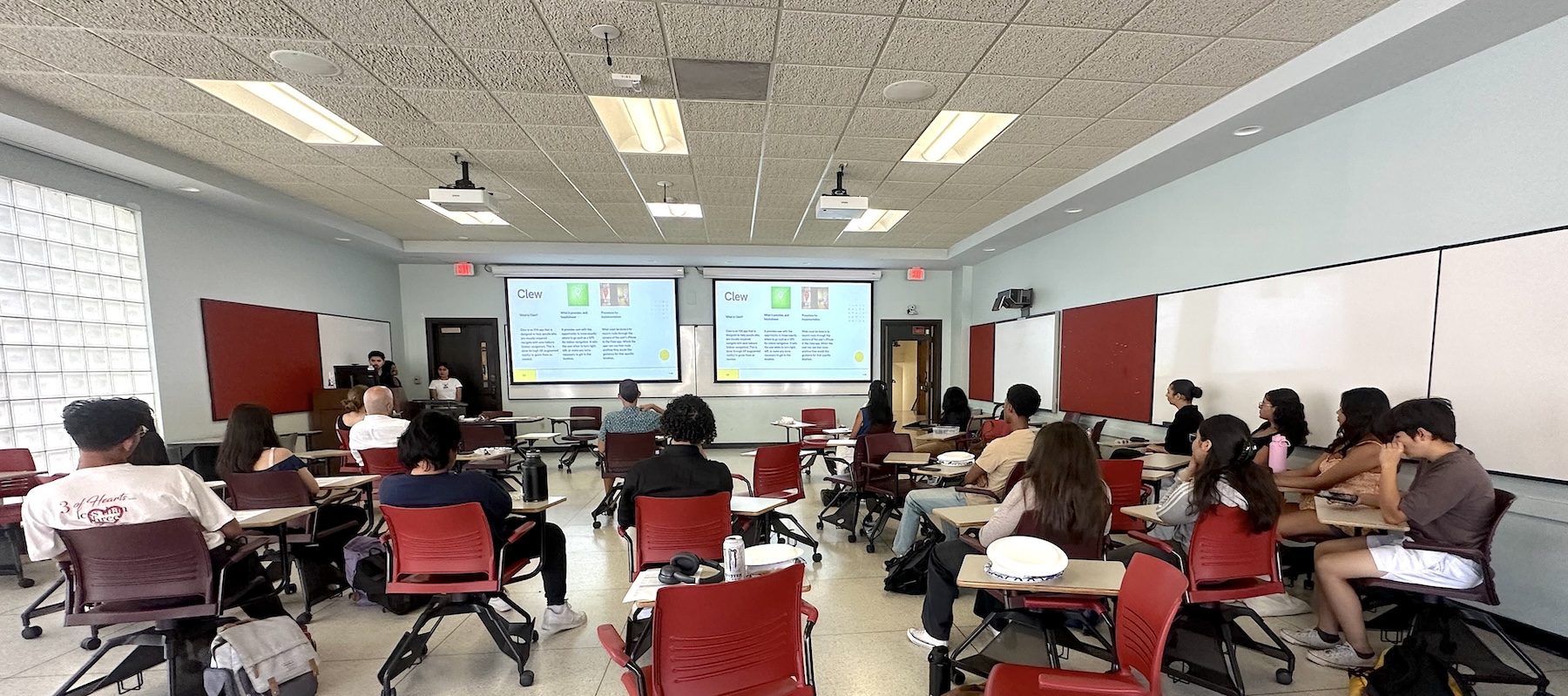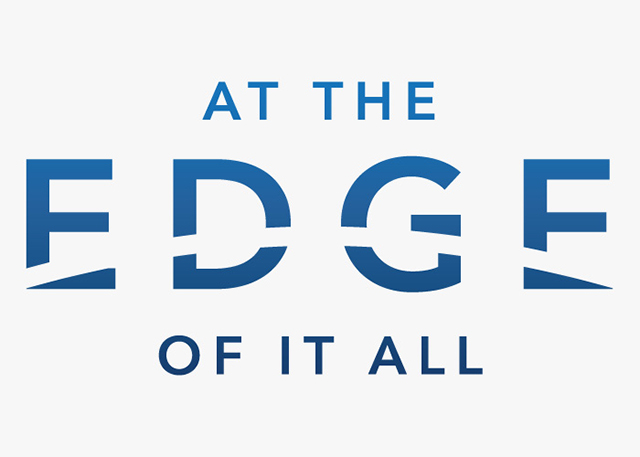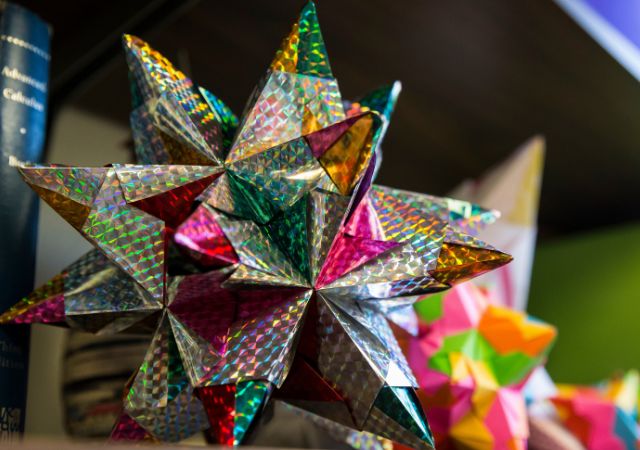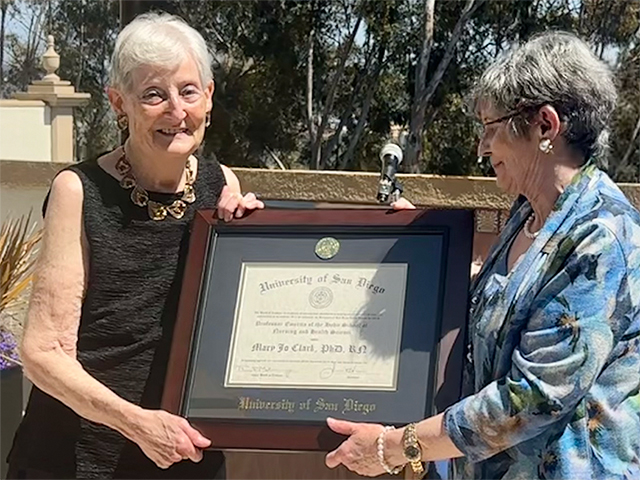Summer Research Colloquium Showcases Student Innovation
Shiley-Marcos School of Engineering inaugural event highlights student projects

One of the hallmarks of the University of San Diego (USD) experience is the opportunity to engage in undergraduate research with a faculty mentor. In early August, the Shiley-Marcos School of Engineering (SMSE) hosted its first Summer Research Colloquium highlighting the impressive work of engineering and computer science students who participated in summer research projects.
The Summer Research Colloquium, a new initiative for the Shiley-Marcos School of Engineering, was led by Associate Professor of Integrated Engineering Diana Chen, PhD, alongside Associate Professor of Mechanical Engineering Melissa Gibbons, PhD, and seven additional faculty members representing the school.
“This colloquium is the culmination of a 10-week summer research experience,” says Chen. The idea came from the office of undergraduate research (OUR). “They are requiring a fall research colloquium and Dr. Gibbons and I thought it made sense to prepare our students during the summer so they are practiced and ready for fall.”
Chen was inspired to host the event after seeing many students working across BEC all summer. “I was meeting with my own students regularly, but I was always so curious about what everyone else was doing! I don’t remember ever seeing that many research students in the summer in my years at USD. I was surprised to see the OUR records listing 19 SMSE students conducting summer research, so I thought I’d get them all together to share their work.”
OUR’s new STAR BURST undergraduate research programs launched in 2024: Summer Training in Advanced Research (STAR) and Beginning Undergraduate Research Summer Training (BURST). These programs are designed to better serve USD undergraduates across all disciplines and with a broad diversity of backgrounds and experience.
Chen and Gibbons were excited to lead the colloquium. "We saw an opportunity to not only prepare our students for the fall event, but also address a gap in technical presentation skills, which are crucial for our SMSE students, especially in interviews. Thankfully, Dean Roberts agreed and sponsored the end-of-summer celebration."
The research projects spanned a gamut of topics — ranging from mechanical testing of bio-inspired suture designs and autonomous vehicle platooning to pair programming and making USD more accessible for the visually impaired. A total of 19 students (not all from SMSE) opted in to present at the colloquium.
Integrated engineering student Marlen Navarro's work on viscoelastic properties of sustainable composites was titled “Understanding the Effect of Temperature and Geometry Variations on the Creep Response of Upcycled Composites.”
To prepare for the Summer Research Colloquium, Navarro, a first-generation student, focused on both the technical aspects of her research and how to clearly communicate her findings. “I worked closely with Dr. Diaz-Montiel to refine my presentation, ensuring it effectively conveyed the core elements of my project. I also partook in several practice presentations, which helped me feel confident in explaining complex concepts ensuring the audience understood my project… I found it helpful to collaborate with fellow students also doing research, which fostered a sense of community and collaboration.”
Assistant Professor of Mechanical Engineering Paulina Diaz-Montiel, PhD beamed while describing the cutting-edge research conducted by her teams. “Undergraduate research is a high-impact activity that supports the learning experiences of our students and helps them identify their unique strengths and academic interests... I was impressed by how they articulated the significance of their work and clearly identified their unique contributions to the scientific community. Even for graduate students, this is very hard to do!”
For Navarro, she found it impactful to learn about the various research topics students worked on over the summer. “Seeing the diverse range of projects showcased at the colloquium was both enlightening and impressive. Each project offered valuable insights and reinforced the importance of interdisciplinary collaboration. The entire experience gave me a deeper appreciation for the collective efforts of the research community and motivated me to continue pursuing meaningful projects.”
While the Summer Research Colloquium serves not only as a culmination of the student’s summer research work, it also serves as preparation for future presentations and potential career opportunities.
"It was inspiring to see the students discuss their work and so fun for them to understand the background and purpose of their peers' projects," Chen concluded. "We hope this becomes an annual tradition, showcasing the innovative spirit of our SMSE students."
— By Michelle Sztupkay



